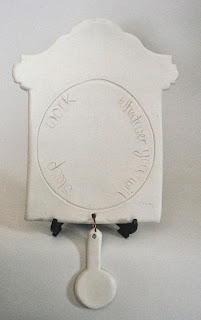I agree it is an element we need to consider. Once a person is content with their own space they have the opportunity to look elsewhere and consider the consequences of their actions on others.
The ‘Re-think Time’ project was split into three separate sections: rethinking work time, rethinking leisure time and rethinking the mechanised time.
To understand why we live by the clock so strictly I looked into the history of the clock and calendar…
During the French Revolution a new calendar and clock system was implemented from 1793 to 1805. Days consisted of 10 hours, each hour of 100 decimal minutes, each minute of 100 decimal seconds. Read more about it here.
Other calendars include:
The Mayan calendar
The Chinese calendar
The Gregorian calendar - the calendar we commonly use
The French reverted back to the Western standardised Gregorian calendar and time after twelve years, but does it make you think- why do we need to run our lives by blocks of 24 hours, or 7 days or 12 months? Nature has defined and separated night and day for us, when we wake and when we sleep.
Below are some extracts from an interesting book on this subject ‘Pip Pip: a sideways look at time’ by Jay Griffiths (Flamingo Harper Collins Publishers, London, 1999)
“Roughly every year, a leap second is added to realign the time with that of the Earth- it is added to ‘accommodate’ the Earth’s unreliable time, for there is no natural gearing between it and the atomic clock’s pip pip pip. The Earth is too inaccurate for modernity’s time measurement.”
“In Rajasthan, the moment when the herds return at evening is called cattle-dust time. Cow time is local, social and embedded in nature’s processes, whereas clock time is global, applicable and anywhere.”
“The ancient Greeks had different Gods for time’s different aspects (including the god of the moment for weeding…) One of the most important was Chronos, who gave his name to absolute time, linear, chronological and quantifiable. But the Greeks had another, far more slippery and colourful god of time, Kairos. Kairos was the god of timing, of opportunity, of chance and mischance, of different aspects of time… if you sleep because the clock tells you it is past your bed time, that is chronological time: whereas if you sleep because you’re tired, that is kairological time… Children live kairologically, until winkled out of it.”
 This part of the project was simply to challenge the mechanised clock and our way of living with it. It was an attempt to share the belief that we do have more time than perhaps perceived when the working day is finished, and what can we achieve in those hours?
This part of the project was simply to challenge the mechanised clock and our way of living with it. It was an attempt to share the belief that we do have more time than perhaps perceived when the working day is finished, and what can we achieve in those hours? This clock face is intentionally not functional. It keeps the 24 hour clock but replaces the traditional numbers with the words ‘WORK/ SLEEP/ WHATEVER YOU WILL.’ Other designs included a clock face with only ten numbers and another with no numbers at all.
By Action 21 volunteer Lenya Paikkou
